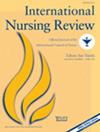Empowering voices: Predictors and levels of nurses’ involvement in healthcare policy
Abstract
Aim
This study examines the level of nurses' involvement in healthcare policy activities in Oman and explores demographic and work-related predictors to identify actionable strategies for enhancing their engagement.
Background
Nurses' involvement in healthcare policy is crucial for effective healthcare strategies, yet participation remains low, especially in developing countries like Oman. Understanding what influences nurses' engagement is vital for enhancing their role in policy-making.
Methods
A cross-sectional study was conducted with 1017 nurses from five hospitals across Oman. Data were collected using the Involvement in Health Policy Questionnaire, and multiple linear regression analysis that identified predictors of involvement.
Results
The study found a generally low level of policy involvement among nurses. Significant positive predictors included interest in policy-making, competency from basic education, confidence, and received training. Negative predictors were being married and working in daycare units.
Discussion
These results suggest that increasing interest, competency, and confidence through targeted educational programs and training is essential to enhance nurses' involvement in policy-making. Addressing barriers faced by married nurses and those in specific units is also important.
Conclusion and implications for nursing and health policy
Targeted strategies that improve education, training, and support systems are necessary to enhance nurses' involvement in healthcare policy. Addressing these factors can lead to more effective nurse participation, ultimately contributing to better healthcare policy and patient outcomes.

 求助内容:
求助内容: 应助结果提醒方式:
应助结果提醒方式:


